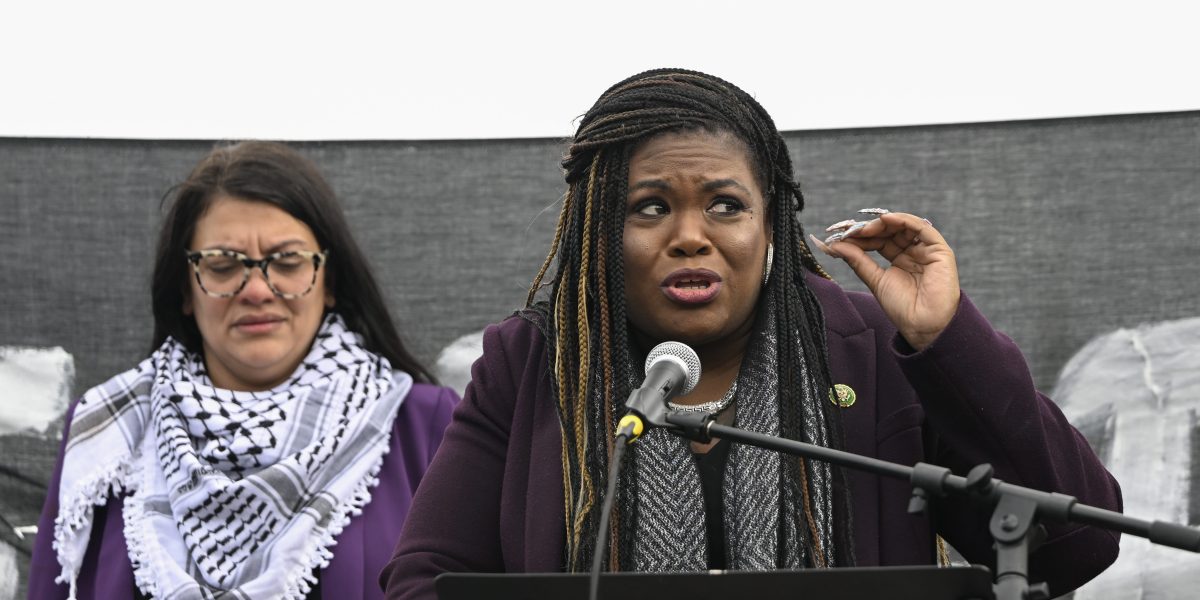One year since she introduced a resolution for a permanent ceasefire in Gaza, Rep. Cori Bush, D-Mo., said she hasn’t seen any indication that a Kamala Harris presidency would result in a different U.S policy toward Israel.
Amid growing public outrage over U.S. support for Israel’s war, President Joe Biden has reportedly used tough language with Prime Minister Benjamin Netanyahu, and in one instance, paused a weapons shipment. Yet there has been no fundamental shift in policy: the U.S. has sent $17.9 billion to Israel over the last year, and even as the administration this week warned Israel that its failure to improve humanitarian conditions in Gaza could affect U.S. military aid, a White House spokesperson said the letter was “not meant as a threat.”
Activist organizations, including Jewish Voice for Peace Action and IMEU Policy Project, are rallying around a new resolution from Sen. Bernie Sanders, I-Vt., that would block the latest $20 billion weapons sale to Israel.
Bush worries that AIPAC’s influence will have a chilling effect on legislators moving forward. “With the attacks from AIPAC, I don’t know what that’s gonna look like in the new Congress. I don’t know what that’s gonna look like when new resolutions are brought forward, after Jamaal and I are gone, as people are thinking about their next elections. I don’t know how that changes. I’m just hoping that people make the decision that it has to be people over their campaign coffers, it has to be human lives over our positions.”
Despite the movement’s setbacks in Congress, activists like Araabi argue that something fundamental has shifted among Democrats on the Hill. The broad popular consensus among both parties over Israel has shifted, he said, “in ways we probably haven’t seen in a generation in politics.”


